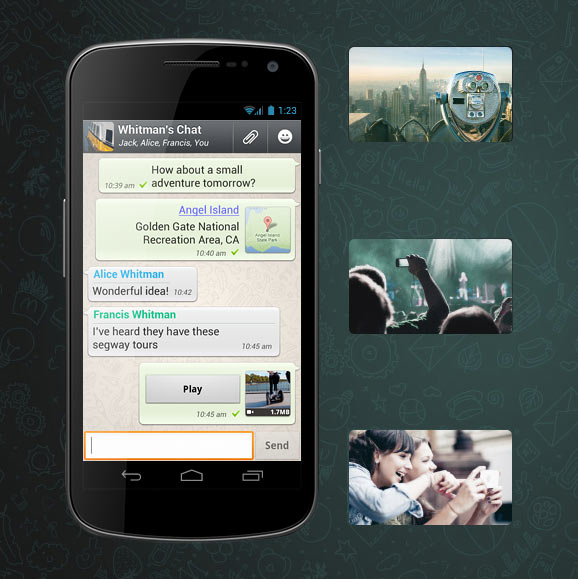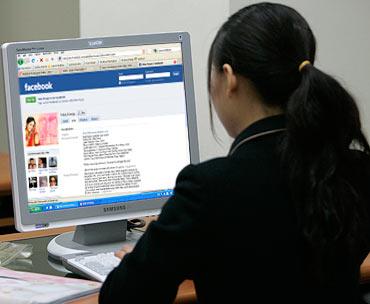
Are Indian teenagers deserting Facebook? If not the whole hog then gradually? Where are they going instead?Why?
iStrategy Labs, a digital agency that engages with online and offline communities, in a recent report revealed that in 2013 there were three million fewer teenagers on Facebook compared to 2011.
The report’s findings were based on numbers from Facebook Advertising, a tool the world’s biggest social networking platform uses to pitch to earn advertising revenue.
Researchers at Princeton too have predicted doom for Facebook. They likened Facebook to a disease and prophesied that the world’s largest social networking site would come crashing down by 2017.
So, is the sheen wearing off Mark Zuckerberg’s $ 155-billion (based on market capitalisation as on January 30) behemoth as users get attracted to newer and better means of connecting with friends and sharing pictures?
“I don’t connect with my friends via Facebook any more. Facebook has become cliched and gradually it has become boring too,” says 22-year-old Trisha Choudhury, who is pursuing her BTech in nanotechnology from Amity University, Delhi.
Trisha got hooked onto Facebook when she was 14, in Class IX. “It was a very good platform to connect with friends and family when I did not have a phone,” she says.
Now, she visits Facebook just twice a week, when she is bored, and uses it to play games like Candy Crush and Criminal Case.
“The same things that I enjoyed as a teenager have become irritants for me,” she says about those notifications that pop out whenever a person in her network posts to update status or mentions her in a post.
Contrary to Trisha’s observations, Amit Chatterjee, an independent social media consultant, points out that every single day a large number of phones that has dedicated Facebook app or offers from telecom companies that offer a Facebook package are lapped up in tier 2 and 3 cities in India indicating a steady rise of young Indian users on the social network.
Ankita Gaba, co-founder socialsamosa.com, an Indian social media knowledge portal, concurs with Amit. “I don’t think teenagers are moving away from Facebook. “In fact,” she says, “India happens to be the second biggest user-base of Facebook after America.”
But there are subtle shifts emerging as newer platforms offer a range of choices to the youth today to connect with their social circles.
Are YOU a teenager? Are YOU moving away from Facebook? VOTE!

Trisha’s classmate at Amity University, Angad Sabharwal, is still quite fond of Facebook, but has found other sites he prefers.
Of late he has been hooked on to Instagram – a social networking app that allows users to post and share pictures by adding pre-set effects to make photographs stand out.
“Facebook is a little old now,” says the 22-year-old Angad. “Instagram is novelty.”
Incidentally, Facebook snapped up Instagram for a whopping one billion dollars in April 2012.
The exponential boom that Facebook spawned since its inception on February 4, 2004, opened the flood gates for other social networks and apps such as Twitter, FourSquare and more recently, Instagram and another hugely popular app, that many experts believe is responsible for eroding Facebook’s user-base, WhatsApp.
“Yes that is true but the reason why users engage with Facebook and WhatsApp are very different,” says Ankita.
She says that WhatsApp is meant for connecting with a smaller group whereas Facebook offers users a wider audience.
“WhatsApp helps me connect with friends who are on my contacts list while Facebook is a broad based way of connecting to friends and family. WhatsApp and Facebook do not have a common set of activities one can engage with. WhatsApp is much more helpful and useful while connecting with friends,” agrees Garv Malik, a third year civil engineering student from BITS Pilani, Hyderabad Campus.
Like Malik, more and more young people and teenagers are joining the WhatsApp bandwagon to connect with friends using instant text chats over the Internet.
“While Facebook helps connect with business online, WhatsApp is like a lifeline,” says Kashni Kharbanda, 23, an online marketing professional.

Everybody on Facebook gives out way too much,” says Karshni picking up on privacy issues that arise when Facebook or other apps on the site ask for users’ permissions to peek into their private data.
Ever since she became aware of these issues Karshni has stopped posting personal photographs on the site. Her time on Facebook is now split between professional and personal slot on a 70 to 30 ratio.
However, for every user on Facebook who raises such issues there are youngsters like Sanyam Garg and Shravan Ajay, who believe that Facebook helps them connect with friends instantly over chats and updates and privacy be damned.
“I chat for hours with friends on Facebook when I log in every alternate day,” says Sanyam, an engineering student from Bangalore.
He finds Facebook addictive, “in the sense that it becomes difficult to log out once you log in.”
Shravan, a third year mass media student from Mumbai, expresses similar concerns but says, “I know how to control myself.”
Shravan spends three to four hours every day on Facebook through the Facebook app on his smartphone.
“Unless my account gets hacked, I have no issues with Facebook,” he says, obviously unconcerned by privacy issues.
Ankita, who often interacts with college students, who are part of various social networks, to gain insights for her portal socialsamosa, says that whether one has privacy issues or not, most of the teenagers do not care much about them. “They are ignorant about privacy issues,” she says.
The fiercest critique of Facebook comes from Garv.

Earlier, people would take pictures to capture memories. Now, we take pictures only to upload them on Facebook,” he says.
He says there is a growing trend of teenagers and adults hiring professionals to on Facebook and earn ‘Likes’.
“There are people who are obsessed with it; most of my friends visit Facebook four to five times a day. They spend money on professional photographers just to get a perfect picture to post it on their Facebook profile,” he fumes.
He would log in three or four times a day, until it dawned on him that Facebook was not productive for him. He now logs in once a day to catch up with friends.
“It affects productivity,” he says. Young people should start socialising in the real world, he feels now.
“There is something called the ‘Like’ button which makes people go crazy. A lot of people think that their social status goes up or down depending on the number of ‘Likes’ they get for their posts and photographs. Their self-confidence and popularity, they think, depends on these 'Likes'. The 'Like' button is actually creating a psychological imbalance in the life of young users,” Malik says.
Francesa Shroff, 19, a mass media student, says she uses Facebook only once in three weeks to check on updates from friends. A far cry from the addictive use of the site reported only a few years ago.